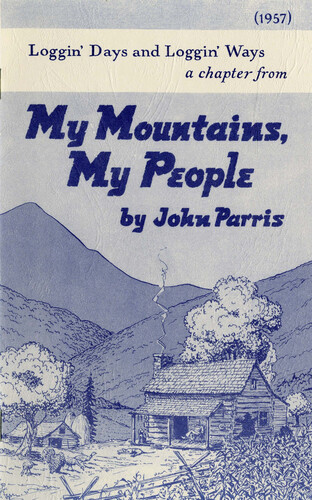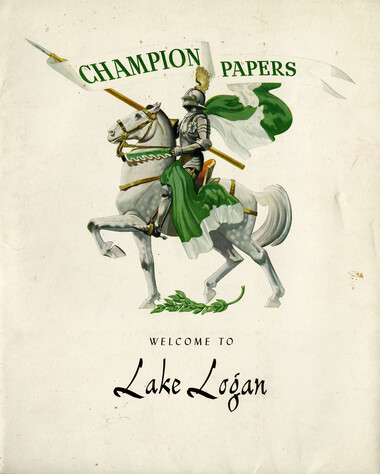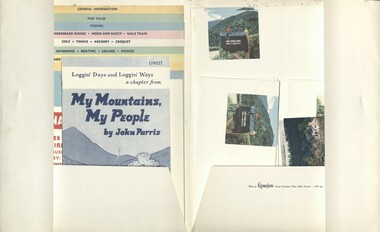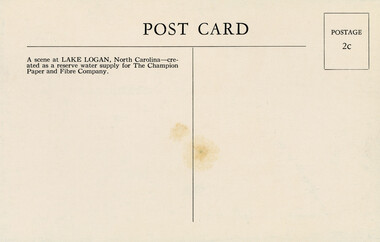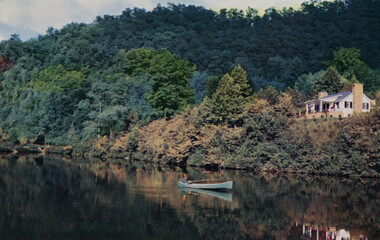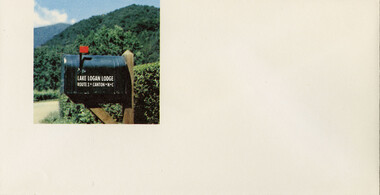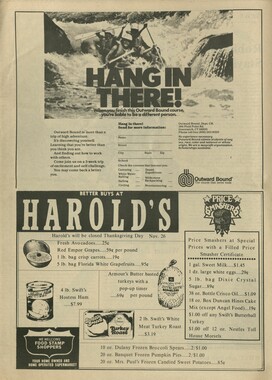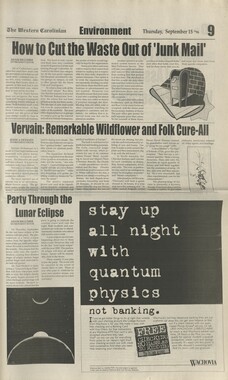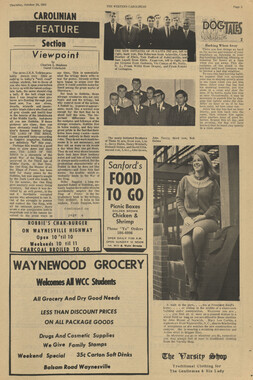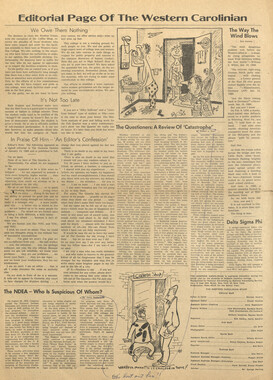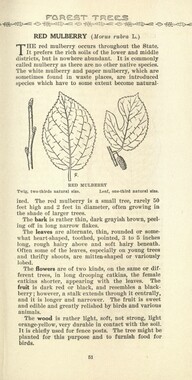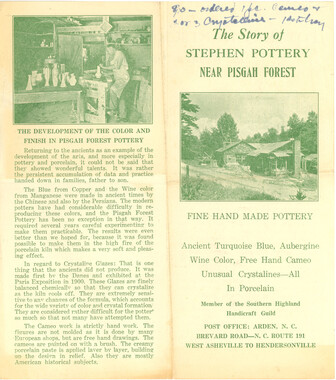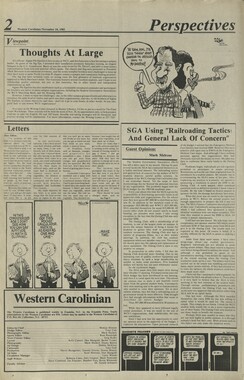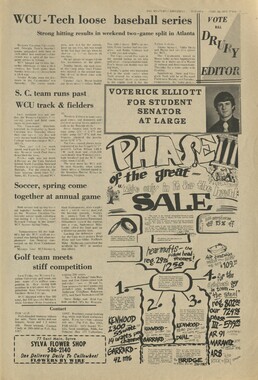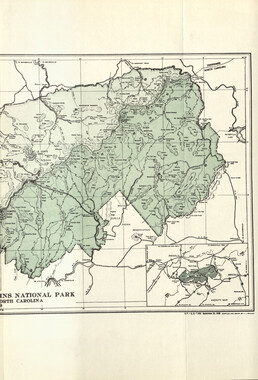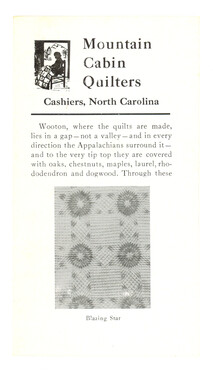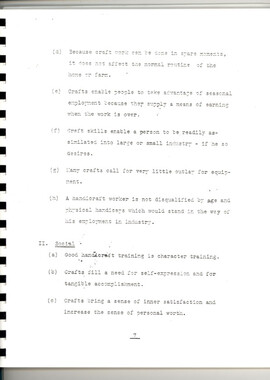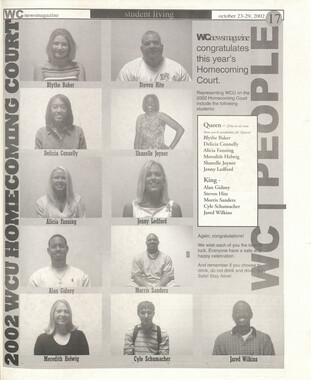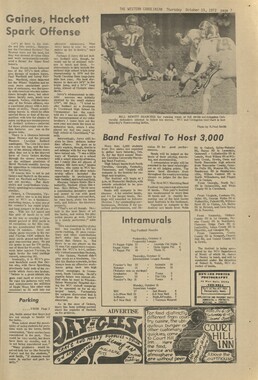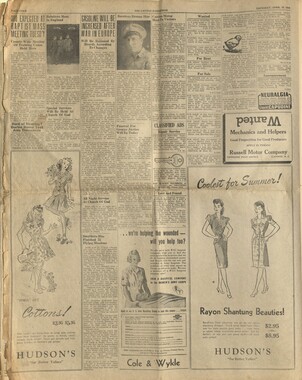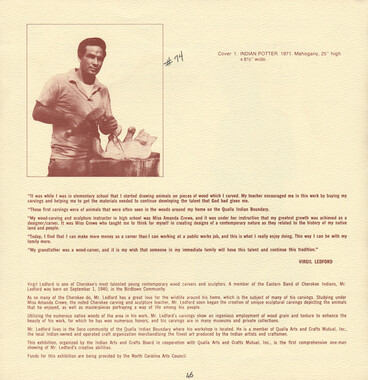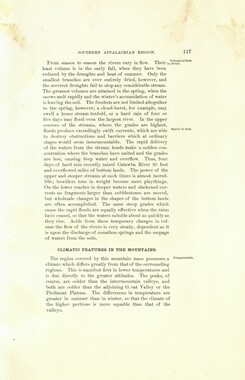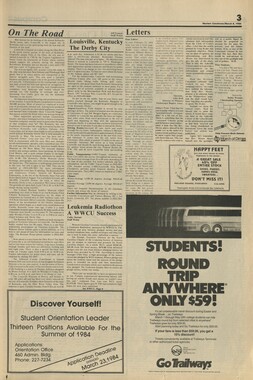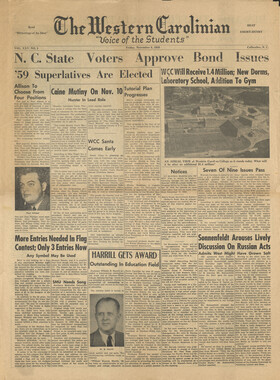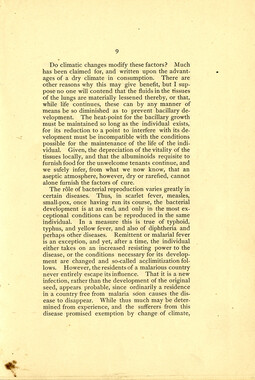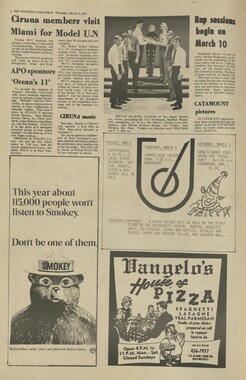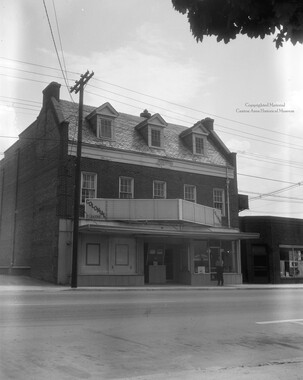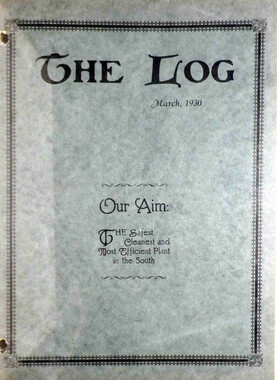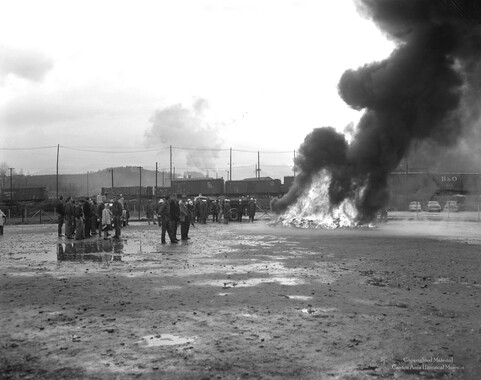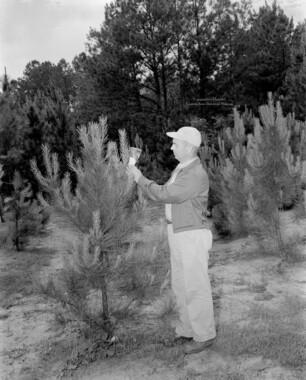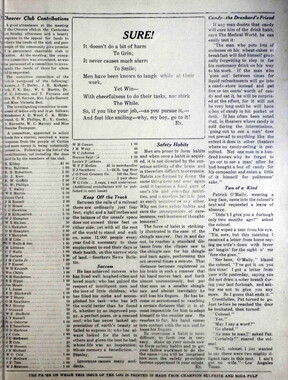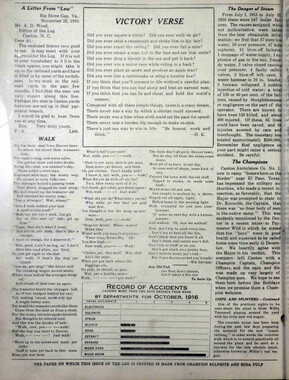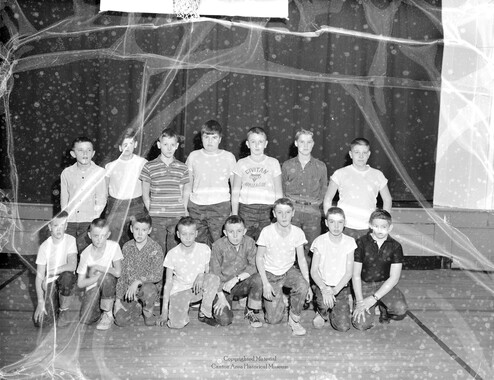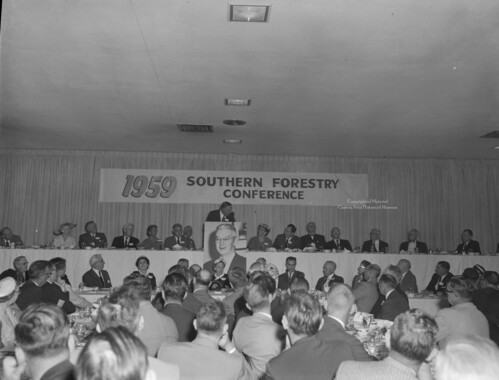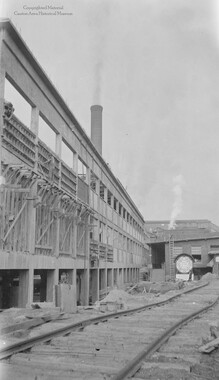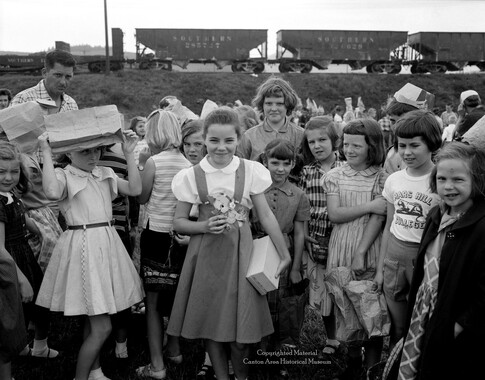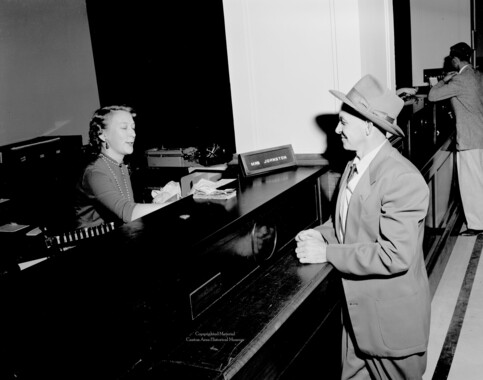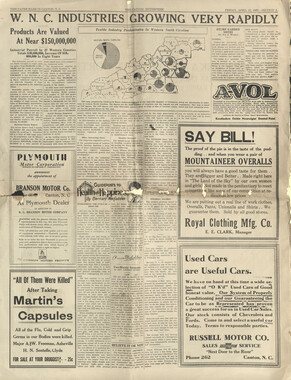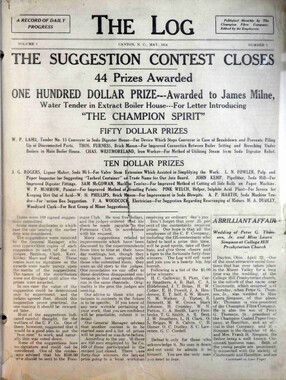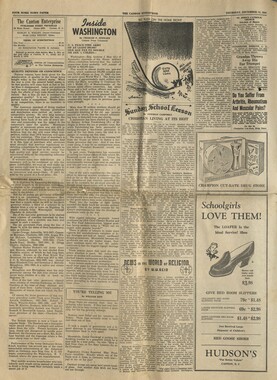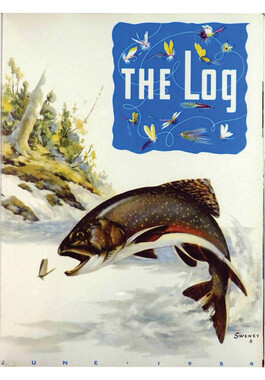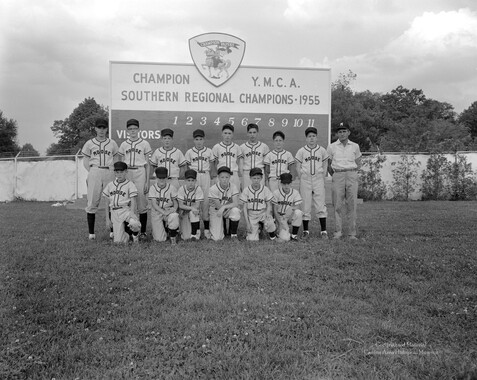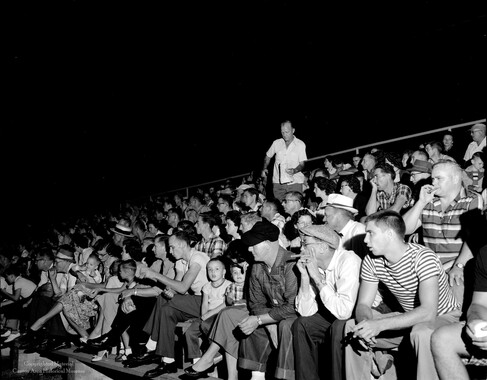Western Carolina University (20)
View all
- Canton Champion Fibre Company (2308)
- Cherokee Traditions (293)
- Civil War in Southern Appalachia (165)
- Craft Revival (1942)
- Great Smoky Mountains - A Park for America (2767)
- Highlights from Western Carolina University (430)
- Horace Kephart (941)
- Journeys Through Jackson (154)
- LGBTQIA+ Archive of Jackson County (24)
- Oral Histories of Western North Carolina (314)
- Picturing Appalachia (6772)
- Stories of Mountain Folk (413)
- Travel Western North Carolina (160)
- Western Carolina University Fine Art Museum Vitreograph Collection (129)
- Western Carolina University Herbarium (92)
- Western Carolina University: Making Memories (708)
- Western Carolina University Publications (2283)
- Western Carolina University Restricted Electronic Theses and Dissertations (146)
- Western North Carolina Regional Maps (71)
- World War II in Southern Appalachia (131)
University of North Carolina Asheville (6)
View all
- Allanstand Cottage Industries (62)
- Appalachian National Park Association (53)
- Bennett, Kelly, 1890-1974 (1388)
- Berry, Walter (76)
- Brasstown Carvers (40)
- Carver, George Washington, 1864?-1943 (26)
- Cathey, Joseph, 1803-1874 (1)
- Champion Fibre Company (233)
- Champion Paper and Fibre Company (297)
- Cherokee Indian Fair Association (16)
- Cherokee Language Program (22)
- Crowe, Amanda (40)
- Edmonston, Thomas Benton, 1842-1907 (7)
- Ensley, A. L. (Abraham Lincoln), 1865-1948 (275)
- Fromer, Irving Rhodes, 1913-1994 (70)
- George Butz (BFS 1907) (46)
- Goodrich, Frances Louisa (120)
- Grant, George Alexander, 1891-1964 (96)
- Heard, Marian Gladys (60)
- Kephart, Calvin, 1883-1969 (15)
- Kephart, Horace, 1862-1931 (313)
- Kephart, Laura, 1862-1954 (39)
- Laney, Gideon Thomas, 1889-1976 (439)
- Masa, George, 1881-1933 (61)
- McElhinney, William Julian, 1896-1953 (44)
- Niggli, Josephina, 1910-1983 (10)
- North Carolina Park Commission (105)
- Osborne, Kezia Stradley (9)
- Owens, Samuel Robert, 1918-1995 (11)
- Penland Weavers and Potters (36)
- Roberts, Vivienne (15)
- Roth, Albert, 1890-1974 (142)
- Schenck, Carl Alwin, 1868-1955 (1)
- Sherrill's Photography Studio (2565)
- Southern Highland Handicraft Guild (127)
- Southern Highlanders, Inc. (71)
- Stalcup, Jesse Bryson (46)
- Stearns, I. K. (213)
- Thompson, James Edward, 1880-1976 (226)
- United States. Indian Arts and Crafts Board (130)
- USFS (683)
- Vance, Zebulon Baird, 1830-1894 (1)
- Weaver, Zebulon, 1872-1948 (58)
- Western Carolina College (230)
- Western Carolina Teachers College (282)
- Western Carolina University (1794)
- Western Carolina University. Mountain Heritage Center (18)
- Whitman, Walt, 1819-1892 (10)
- Wilburn, Hiram Coleman, 1880-1967 (73)
- Williams, Isadora (3)
- Cain, Doreyl Ammons (0)
- Crittenden, Lorraine (0)
- Rhodes, Judy (0)
- Smith, Edward Clark (0)
- Appalachian Region, Southern (2393)
- Asheville (N.C.) (1886)
- Avery County (N.C.) (26)
- Blount County (Tenn.) (161)
- Buncombe County (N.C.) (1664)
- Cherokee County (N.C.) (283)
- Clay County (N.C.) (555)
- Graham County (N.C.) (233)
- Great Smoky Mountains National Park (N.C. and Tenn.) (478)
- Haywood County (N.C.) (3522)
- Henderson County (N.C.) (70)
- Jackson County (N.C.) (4692)
- Knox County (Tenn.) (25)
- Knoxville (Tenn.) (12)
- Lake Santeetlah (N.C.) (10)
- Macon County (N.C.) (420)
- Madison County (N.C.) (211)
- McDowell County (N.C.) (39)
- Mitchell County (N.C.) (132)
- Polk County (N.C.) (35)
- Qualla Boundary (981)
- Rutherford County (N.C.) (76)
- Swain County (N.C.) (2113)
- Transylvania County (N.C.) (247)
- Watauga County (N.C.) (12)
- Waynesville (N.C.) (68)
- Yancey County (N.C.) (72)
- Aerial Photographs (3)
- Aerial Views (60)
- Albums (books) (4)
- Articles (1)
- Artifacts (object Genre) (228)
- Biography (general Genre) (2)
- Cards (information Artifacts) (38)
- Clippings (information Artifacts) (191)
- Crafts (art Genres) (622)
- Depictions (visual Works) (21)
- Design Drawings (1)
- Drawings (visual Works) (184)
- Envelopes (73)
- Facsimiles (reproductions) (1)
- Fiction (general Genre) (4)
- Financial Records (12)
- Fliers (printed Matter) (67)
- Glass Plate Negatives (381)
- Guidebooks (2)
- Internegatives (10)
- Interviews (811)
- Land Surveys (102)
- Letters (correspondence) (1013)
- Manuscripts (documents) (619)
- Maps (documents) (159)
- Memorandums (25)
- Minutes (administrative Records) (59)
- Negatives (photographs) (5835)
- Newsletters (1285)
- Newspapers (2)
- Occupation Currency (1)
- Paintings (visual Works) (1)
- Pen And Ink Drawings (1)
- Periodicals (193)
- Personal Narratives (7)
- Photographs (12975)
- Plans (maps) (1)
- Poetry (5)
- Portraits (1663)
- Postcards (329)
- Programs (documents) (151)
- Publications (documents) (2237)
- Questionnaires (65)
- Scrapbooks (282)
- Sheet Music (1)
- Slides (photographs) (402)
- Sound Recordings (796)
- Specimens (92)
- Speeches (documents) (15)
- Tintypes (photographs) (8)
- Transcripts (322)
- Video Recordings (physical Artifacts) (23)
- Vitreographs (129)
- Text Messages (0)
- A.L. Ensley Collection (275)
- Appalachian Industrial School Records (7)
- Appalachian National Park Association Records (336)
- Axley-Meroney Collection (2)
- Bayard Wootten Photograph Collection (20)
- Bethel Rural Community Organization Collection (7)
- Blumer Collection (5)
- C.W. Slagle Collection (20)
- Canton Area Historical Museum (2110)
- Carlos C. Campbell Collection (282)
- Cataloochee History Project (65)
- Cherokee Studies Collection (4)
- Daisy Dame Photograph Album (5)
- Daniel Boone VI Collection (1)
- Doris Ulmann Photograph Collection (112)
- Elizabeth H. Lasley Collection (1)
- Elizabeth Woolworth Szold Fleharty Collection (4)
- Frank Fry Collection (95)
- George Masa Collection (173)
- Gideon Laney Collection (452)
- Hazel Scarborough Collection (2)
- Hiram C. Wilburn Papers (28)
- Historic Photographs Collection (236)
- Horace Kephart Collection (861)
- Humbard Collection (33)
- Hunter and Weaver Families Collection (1)
- I. D. Blumenthal Collection (4)
- Isadora Williams Collection (4)
- Jesse Bryson Stalcup Collection (47)
- Jim Thompson Collection (224)
- John B. Battle Collection (7)
- John C. Campbell Folk School Records (80)
- John Parris Collection (6)
- Judaculla Rock project (2)
- Kelly Bennett Collection (1407)
- Love Family Papers (11)
- Major Wiley Parris Civil War Letters (3)
- Map Collection (12)
- McFee-Misemer Civil War Letters (34)
- Mountain Heritage Center Collection (4)
- Norburn - Robertson - Thomson Families Collection (44)
- Pauline Hood Collection (7)
- Pre-Guild Collection (2)
- Qualla Arts and Crafts Mutual Collection (12)
- R.A. Romanes Collection (681)
- Rosser H. Taylor Collection (1)
- Samuel Robert Owens Collection (94)
- Sara Madison Collection (144)
- Sherrill Studio Photo Collection (2558)
- Smoky Mountains Hiking Club Collection (616)
- Stories of Mountain Folk - Radio Programs (374)
- The Reporter, Western Carolina University (510)
- Venoy and Elizabeth Reed Collection (16)
- WCU Gender and Sexuality Oral History Project (32)
- WCU Mountain Heritage Center Oral Histories (25)
- WCU Oral History Collection - Mountain People, Mountain Lives (71)
- WCU Students Newspapers Collection (1744)
- Western North Carolina Tomorrow Black Oral History Project (69)
- William Williams Stringfield Collection (2)
- Zebulon Weaver Collection (109)
- African Americans (390)
- Appalachian Trail (35)
- Artisans (521)
- Cherokee art (84)
- Cherokee artists -- North Carolina (10)
- Cherokee language (21)
- Cherokee pottery (101)
- Cherokee women (208)
- Church buildings (167)
- Civilian Conservation Corps (U.S.) (110)
- College student newspapers and periodicals (1830)
- Dams (103)
- Dance (1023)
- Education (222)
- Floods (61)
- Folk music (1015)
- Forced removal, 1813-1903 (2)
- Forest conservation (220)
- Forests and forestry (917)
- Gender nonconformity (4)
- Great Smoky Mountains National Park (N.C. and Tenn.) (154)
- Hunting (38)
- Landscape photography (10)
- Logging (103)
- Maps (84)
- Mines and mineral resources (8)
- North Carolina -- Maps (18)
- Paper industry (38)
- Postcards (255)
- Pottery (135)
- Railroad trains (71)
- Rural electrification -- North Carolina, Western (3)
- School integration -- Southern States (2)
- Segregation -- North Carolina, Western (5)
- Slavery (5)
- Sports (452)
- Storytelling (245)
- Waterfalls -- Great Smoky Mountains (N.C. and Tenn.) (66)
- Weaving -- Appalachian Region, Southern (280)
- Wood-carving -- Appalachian Region, Southern (328)
- World War, 1939-1945 (173)
Lake Logan welcome packet
Item
Item’s are ‘child’ level descriptions to ‘parent’ objects, (e.g. one page of a whole book).
-
-
Loggin' Days and Loggin' Ways Sunburst THE GREAT LOGGING TOWN, WITH ITS BANDMILL AND neat little rows of houses, is only a ghost of a memory. The stolid, plodding oxen, snaking the fallen trees from the forest, have disappeared along with the wood-burning logging train. The broad-axe, symbol of the woodman's quest, leans against the big stone fireplace in the hundred-year-old cabin with its massive hand-hewn logs where I'm writing this piece. My desk is a 20-foot table sawn from a four-foot-through poplar tree that was a sapling when the folks of Massachusetts were buzzing over the Salem witchcraft trials. Outside the morning breeze is whispering in the tall, majestic hemlocks and there is the sound of water pouring over the little water-wheel. Up from the narrow valley, in a world of high bright air and tingling scents and singing white water, the trees rise rank upon rank. The trees are green against a blue sky. The world below them has changed. Only the trees still stand. And the man. They are the only reminders of the town that once stood here and of the good, new way of life that came to the people of these mountains half a century ago. When Reuben B. Robertson came into this country 50 years ago it was still a land where the pioneers made their own legends, just as they had to make everything else. It didn't take Reuben Robertson long to become a legend, a living legend. The young man from Ohio, forsaking a career in law to make paper, saw Sunburst become the nation's model logging town and worked to make the Carolina division of Champion Paper and Fibre Company at Canton a booming industry that for half a century has brought happiness and prosperity to a heap of moun-tain folks. Since this is the year that the Carolina division celebrates its golden anniversary, it seemed appropriate to come here where Champion really had its start in our mountains. As a boy of ten, I knew Sunburst briefly, remembering the big log pond, the giant flume shooting logs out of the mountains, the oxen pulling and tugging their loads, the blast of the mill whistle at noon, the echo of the train whistle rolling down from the hills. But to really know what Sunburst was like fifty years ago, you must talk to Hope Thomson Robertson, whose father founded Champion, and, who, as a young bride, came into these hills with Reuben Robertson. Her father, Peter G. Thomson, had stood here in the narrow valley one morning and had watched the sun burst over the mountains. This was an empire of trees and he was looking for a place to further his paper-making industry. He had decided this was the spot. This would be the place where his logging town would rise. He watched the sun burst over the mountains and he said, "We'll call it Sunburst." He sent his son-in-law down here to make the operation go. Peter Thomson was a wise man. How wise, only the years were to prove. When Hope Robertson left her home in Cincinnati for the hills of North Carolina she had no idea what she would find. It was to be an adventure that was to turn into a love affair--a love affair with the people and the mountains. Hel'e in the hundred-year-old cabin, before a fire in the chill of early morning, we sat with her and talked of that first trip and of the days of old Sunburst. You can never live over the time you first came to a place, just as you never can recapture the lost years of youth, but you - can never forget it, either. The memories burn as bright as yesterday, and Hope Robertson is a lady who remembers well because her years all have been 1 years of happiness. "My daughter was six months old when we left Cincinnati," she recalled, the sparkle of memory in her eyes, "and Reuben drove us from Canton in a wagon. "We had to ford the creeks ten times in getting here. And folks would always say they'd make the trip God willing and the creek not too high. There wasn't much of a road in those days. "Part of the road was made out of logs. That was where it was I low and swampy. Logs were cut and laid crosswise and you traveled I over them, bumping along. Where it was dirt, it was bumpy in dry weather and muddy in wet weather. You'd mire up above the hubs and the oxen would have to pull you out. "When I came in here with Reuben it was just the start of the town. Houses had been built for the workers. There was a church and a school and I started the first Sunday school. "Mother would send me down the lessons they were studying in their Sunday school classes at our church back in Cincinnati and I would use them. "There were some 350 men working out of Sunburst then. Most of them were married and had their families living here. It was a good sized community. We lived in a cottage near the river. "I remember there was just one store. It was a little store and not much variety, but we got along. "I really didn't have time to get homesick. There was so much to do. Since we had so little, we had to do with what we had or make it ourselves. "I made all my own clothes and clothes for my babies. Coming here made me learn to do everything. You had to do for yourself or do without. It was a good lesson for me." The fire burned low but the memories burned bright. And Hope Robertson talked of the bustling town with its loggers and of the logging trains running out of the mountains, fetching wood that made its way down to Canton and the new pulp mill. But she remembered mostly the things that are close to a woman's heart, a mother's heart. "I remember that first Christmas here at Sunburst," she said. "That was 50 years ago this December. My daughter Hope was nine months old and it was her first Christmas. "I told Reuben that we had to have a real Christmas for her. "The two of us-Reuben and I-went into the forest back of our house and he chopped down a Christmas tree. Mother had I sent me a lot of decorations and I decorated the tree. It was a pretty tree. "Folks in the community had never seen a decorated Christmas tree and we invited them around and had a Christmas celebration. They were wonderful people. From the first I loved them. I've always loved people and these people were w~nderful.~' For a moment she stared into the fire. "You know," she said, "I never have regretted coming down here. My people back home said I wouldn't stay two years. I've been here fifty. And I'm happy and I've never had any regrets. ''Reuben and I loved the people from the start. And they loved us. That makes a difference. I remember when we had been here only a short time, one of the men working for Reuben came to me and said, 'We'd go on our hands and knees to the end of the earth for Mr. Robertson'. " Mrs. Robertson didn't say so, but that was the beginning of the legend. For in the years that he has been in Western North Carolina, many a man has felt the same way and folks have come to look upon Reuben Robertson as a mountain man, strong and tall and lasting as the mountains. Other men have come and gone, but he is still here. No one ever called him a timber baron, a man who denuded the mountains, took his gold, and left. Reuben Robertson was never reckless with the forests of our mountains. He never did hack the forests indiscriminately. "Reuben," said his wife, "always has looked ahead." He instituted selective cutting in a land where others had skinned the mountains and left them to erode and scar the land-scape. That is why Champion, under his leadership, has won the respect and confidence of the mountain people who think upon him as a mountain man and not a Yankee. That is why, if you come here to Sunburst, there is nothing to remind you that a logging town ever existed. The trees still stand. Where they were felled fifty years ago, new ones have sprung up to keep this section an empire of trees, green and lush. Only the ghosts of yesterday are still about. And they live only when Hope Robertson sits beside the fire and talks about Sunburst when it was a great logging town. I Reprinted by permission of t
Object
Object’s are ‘parent’ level descriptions to ‘children’ items, (e.g. a book with pages).
-
This welcome packet for Lake Logan includes two postcards, stationery and envelopes, a chapter from "Loggin' Days and Loggin' Ways" by John Parris titled "My Mountains, My People," and a ten-page overview of information including how to signal for a fire, and the location for each of the activities offered with two pages dedicated to fishing.
-
